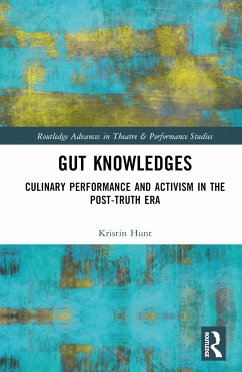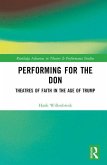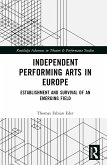This book examines historical and contemporary activist alimentary performance with an eye toward, or perhaps a taste for, what these performance modes can reveal about changing relationships between the senses, truth, justice, and ethical action amid the post-truth era's destabilization of shared notions of truth.
This inquiry emerges in response to an urgent need to understand how multisensory models of knowledge, truth, and justice can be ethically employed to nurture a more just society. Alongside this goal is a drive to understand the ways in which these modes of performance are being co-opted by authoritarians, white supremacists, anti-science activists, and others to shore up injustice, promote misinformation, and anxiously guard existing systems of power and privilege. From white supremacist milk-drinking performances to liberatory uses of culinary performance as pedagogy, Kristin Hunt analyzes both disturbing and inspiring alimentary events to understand how performers, cooks, scholars, artists, and activists can effectively cultivate models of alimentary performance that center plenitude, joy, and justice while pushing back against models rooted in anxiety, diminishment, and cruelty.
The text should be of interest for students in performance studies, contemporary theatre, and theatre history as well as courses in food studies and popular culture.
This inquiry emerges in response to an urgent need to understand how multisensory models of knowledge, truth, and justice can be ethically employed to nurture a more just society. Alongside this goal is a drive to understand the ways in which these modes of performance are being co-opted by authoritarians, white supremacists, anti-science activists, and others to shore up injustice, promote misinformation, and anxiously guard existing systems of power and privilege. From white supremacist milk-drinking performances to liberatory uses of culinary performance as pedagogy, Kristin Hunt analyzes both disturbing and inspiring alimentary events to understand how performers, cooks, scholars, artists, and activists can effectively cultivate models of alimentary performance that center plenitude, joy, and justice while pushing back against models rooted in anxiety, diminishment, and cruelty.
The text should be of interest for students in performance studies, contemporary theatre, and theatre history as well as courses in food studies and popular culture.









